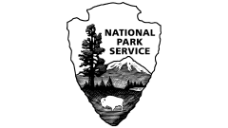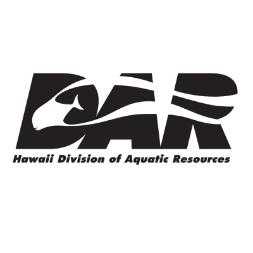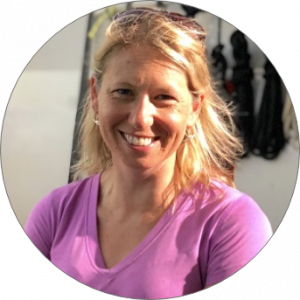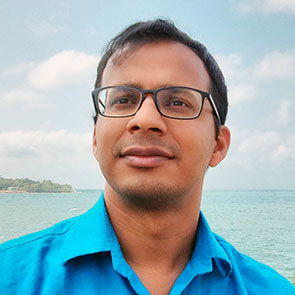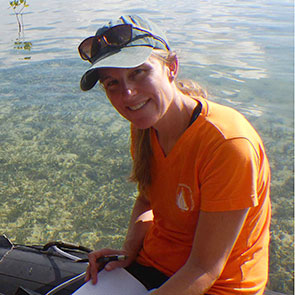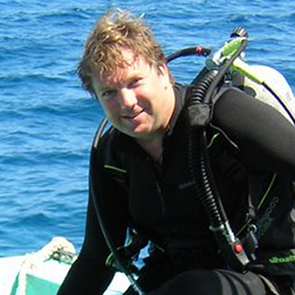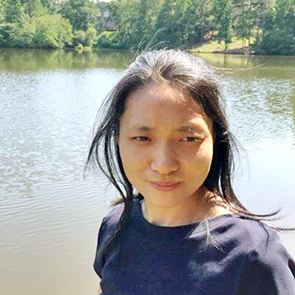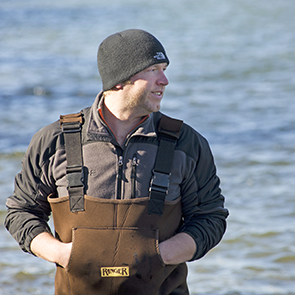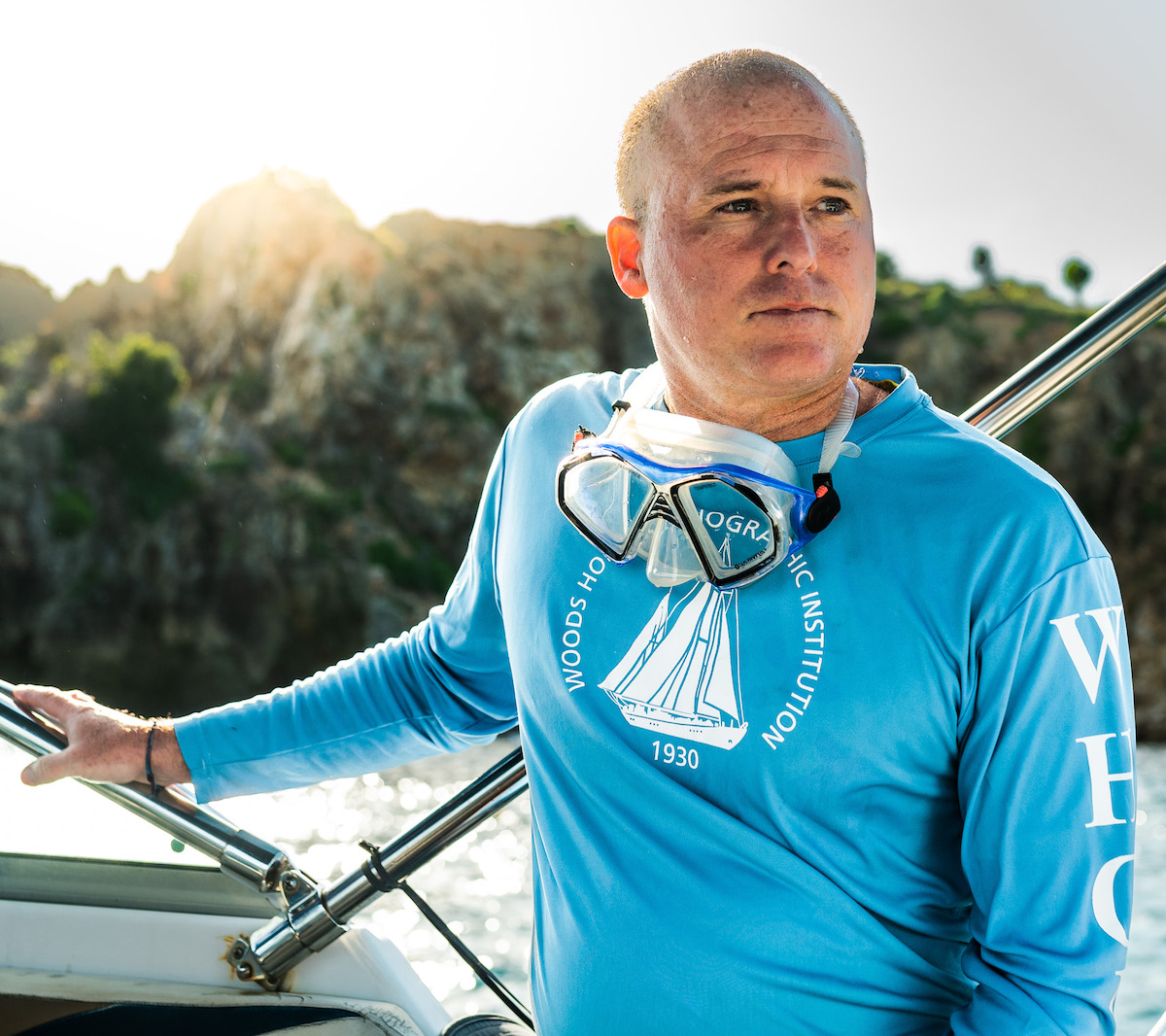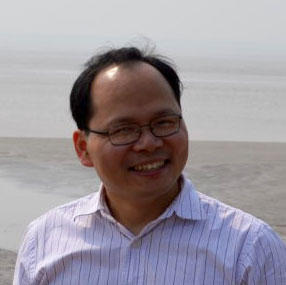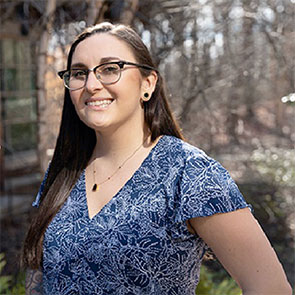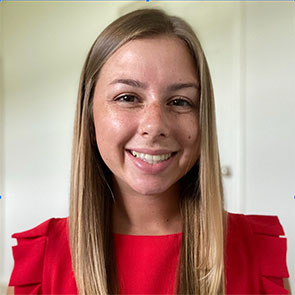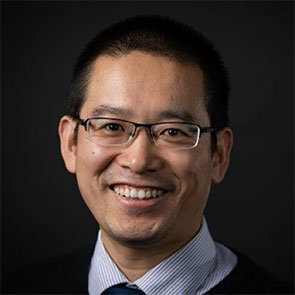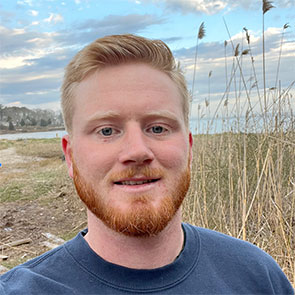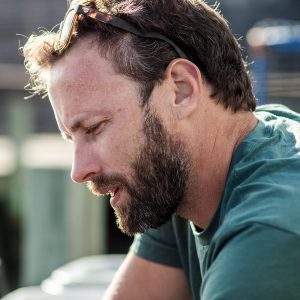Meet the Team
The WHOI Reef Solutions team is a group of scientists and engineers dedicated to transforming outcomes for vulnerable reefs.
Our convergence research approach enables novel technologies and experimental frameworks to quickly test and deploy interventions, in partnership with local communities and conservation organizations.
Principal Investigators
Amy Apprill
Coral reef microbiology
Amy is developing ways to use reef water microorganisms as indicators of ocean and reef health, and testing how microorganisms can be used as probiotics to improve coral and reef health. Although she grew up without the ocean in Missouri, she now loves SCUBA diving, ocean swimming and training and inspiring new ocean scientists.
Yogesh (Yogi) Girdhar
Reef robotics & AI
Yogi developed CUREE, an autonomous robot capable of monitoring different aspects of a coral reef ecosystem. CUREE can rapidly survey coral reefs and produce metrics such as coral cover, bleaching, and biodiversity and also identify bioactivity hotspots. Yogi is working on improving his free-diving skills.
Colleen Hansel
Coral chemistry & health
Colleen develops sensors to measure a suite of chemicals involved in coral health and stress (reactive oxygen species and volatile halogenated organic compounds) and is developing micronutrient supplements to enhance coral growth and immunity. Colleen enjoys SCUBA diving and sailing with her family and friends.
Aran Mooney
Reef soundscapes & biodiversity
Aran studies reef health and biodiversity through reef soundscapes. His team has been studying coral reefs in the USVI since 2012, the longest ongoing acoustic monitoring of any reefs in the world! They’ve been applying this knowledge to solutions such as replaying reef sounds to attract baby corals and fishes. He's been a water person his entire life, and enjoys swimming with his kids and Labrador retriever.
Weifeng (Gordon) Zhang
Reef Physics
Gordon deploys instruments at strategic locations to measure water motion and hydrodynamic conditions over coral reefs. He also develops high-resolution hydrodynamic computer models to quantify underwater weather, study larval transport in reefs, and guide efficient reef experiments and restoration activities. Being enthusiastic about tennis, Gordon enjoys hitting balls with tennis players around the world during his coral reef fieldworks.
Team Members
Natalie Danek
Coral Chemistry & Health
Natalie is developing micronutrient substrates to help reefs increase coral growth and resilience to stressors. Outside of the lab she enjoys baking, paddle boarding, and making macramé art.
Nate Formel
Reef soundscapes, field logistics & tool design
Nate works with Aran on collecting and analyzing coral reef soundscape data to leverage passive acoustic monitoring as a management tool. He also helps the team with field logistics to carry out fieldwork and develops tools and deployment systems for streamlining research efforts. Whether working or playing, you can find Nate in, on, or around the water!
Students & Postdocs
Nadege Aoki
Joint Program Student
Eric Chen
Joint Program Student
Jeanne Bloomberg
Joint Program Student
Mallory Kastner
Joint Program Student
Samuel Koeck
Joint Program Student
Audrey Sarin
Joint Program Student
Daniel Yang
Joint Program Student
Partnerships
